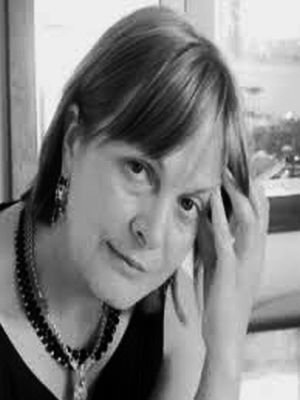The importance of being Earnest
comedy by Oscar Wilde

Gwendolen (Ana Mandić)
My ideal has always been to love sam one of the name of Ernest. There is something in that name that inspires absolute confidence.
Cecily (Sena Đorović)
Oh, I don’t think I would care to catch a sensible man. I shouldn’t know what to talk to him about.
Algernon (Miloš Đorđević)
The truth is rarely pure and never simple.
Jack (Nenad Stojmenović)
I am sick to death of cleverness. Everybody is clever people. The thing has become an absolute publlic nuisance. I wish to goodness we had a few fools left.
Lady Bracknell (Duda Stojanović)
We live, I regret to say, in an age of surfaces.
Miss Prism (Sonja Knežević)
I am not in favor of this modern mania for turning bad people into good people at a moment’s notice. As a man sows so let him reap.
Chasuble (Zoran Ćosić)
What seem to us bitter trials are often blessings in disguise.
Oskar Vajld
I have the simplest tastes…I am always satisfied with the best.
 OSCAR FINGAL O'FLAHERTIE WILLS
OSCAR FINGAL O'FLAHERTIE WILLS
WILDE: A CHRONOLOGY
16 October 1854 Born at 21 Westland Row, Dublin, the second son of Sir William Wilde, aural surgeon, and Jane Lady Wilde, the Irish Nationalist poetess (Speranza).
1865-71 At Portora Royal School, Enniskillen.
1871-74 At Trinity College, Dublin, Scholar and winner of Berkeley Gold Medal for Greek.
1874-78 At Magdalen College, Oxford. Wins Newdigate Prize for English Verse (Ravenna), and gains 'Double First' in university degree examinations.
1876 Father Sir William Wilde dies'in Dublin, aged 61.
1880 Writes Vera; or the Nihilists.
1881 Collected Poems published; goes into four editions.
1882 Undertakes extensive lecture tour of the United States and Canada, "his subjects being 'The English Renaissance of Art', 'House Decoration', 'Art and the Handicraftsman', and 'The Irish Poets of '48'.
1883 Writes The Duchess of Padua.
1884 Marries Miss Constance Lloyd, daughter of Mr. Horatio Lloyd, Q.C., at St. James's Church, Paddington.
1887-89 Editor of The Woman's World for Cassell's.
1888 Publishes The Happy Prince and Other Tales.
1889 The Portrait of Mr. W.H. published in Black wood's Edinburgh Magazine (July).
1890 The Picture of Dorian Gray published in Lippincott's Monthly Magazine (June).
1891 Meets Lord Alfred Douglas for first time. The Soul of Man Under Socialism published in The Fortnightly Review (February). The Picture of Dorian Gray republished in book form with numerous alterations and additions. Also publishes Intentions, Lord Arthur Savile's Crime and Other Stories, and A House of Pomegranates.
20 February 1892 Lady Windermere's Fan first performed at the St. James's Theatre. Writes Salome in French. Sarah Bernhardt, the leading French actress, agrees to play title role and the play is being rehearsed in London when the Lord Chamberlain bans its public performance on the ground that it introduces Biblical characters, whose appearance on the stage was then forbidden.
1893 Publishes Salome in simultaneous French and English edition. A later English edition (1894) appeared, with illustrations by Aubrey Beardsley.
19 April 1893 A Woman of No Importance first performed at the Theatre Royal, Haymarket.
1894 Publishes The Sphinx with 'decorations' by Charles Ricketts. Lord Queensberry threatens to disown his son Lord Alfred Douglas unless he ceases to associate with Wilde, and Douglas refuses, Publication of The Chameleon containing Wilde's 'Phrases and Philosophies for the Use of the Young'. Wilde also writes La Sainte Courtisane and A Florentine Tragedy at this time.
3 January 1895 An Ideal Husband first performed at the Hay-market theatre.
14 February The Importance of Being Earnest first performed at the St. James's Theatre. Queensberry, who is denied admission to the theatre with the intention of creating a scene, calls at Wilde's club four days later and leaves his card for Wilde with an inscription accusing Wilde of posing as a sodomite.
28 February Wilde receives Queensberry's card and decides to prosecute him for criminal libel.
1 March Queensberry arrested and committed for trial.
3 April Queensberry trial opens at Central Criminal Court (Old Bailey) before Mr. Justice Henn Collins and a jury.
5 April Wilde withdraws prosecution, on his counsel's advice, and Queensberry is acquitted. Arrested later same day. Bail refused.
26 April-7 May Tried jointly with Alfred Taylor on homosexual charges at the Old Bailey before Mr. Justice Charles and a jury. Jury disagrees on principal counts of indictment. Wilde released on bail of £5.000.
2o-25 May Tried before Mr. Justice Wills and jury, Taylor being tried separately. Both found guilty and sentenced to two years imprisonment with hard labour. Taken to Pentonville prison.
4 July Transferred from Pentonville to Wandsworth.
26 August Adjudicated bankrupt.
12 November Public examination in bankruptcy.
20 November Transferred from Wandsworth to Reading.
3 February 1896 Mother Lady Wilde dies in London, aged 70.
11 February Salome first performed at the Theatre de L'Oeuvre, Paris.
February 1897 Constance Wilde granted custody by Chancery Court in London of their two children Cyril and Vyvyan, with herself and her cousin Adrian Hope as guardians. The children's surname was subsequently changed from Wilde to Holland.
March Completes De Profundis in the form of a long letter to Lord Alfred Douglas.
19 May On his release from prison, travels by night boat to Dieppe where he is met by Robert Ross, to whom he entrusts the manuscript of De Profundis for copying and arranging that a typed copy is sent to Douglas.
June-August Settles at Berneval, near Dieppe, and writes the greater part of The Ballad of Reading Gaol there.
September Reunited with Douglas in Rouen, going on to Naples where they take a furnished villa and Wilde finishes The Ballad. They eventually separate for financial reasons, since Wilde's wife had stopped the allowance she made him when she heard that he was living with Douglas.
March 1898 The Ballad of Reading Gaol published pseudo-nymously ('By C.3.3.') by Leonard Smithers. During next three months it goes into six editions.
7 April Constance Wilde dies in Genoa, aged 40, and is buried in the Protestant cemetery there. Adrian Hope continues as the children's sole guardian.
1899 Seventh edition of The Ballad of Reading Gaol published with the addition of the author's name in brackets after the pseudonym on the title page.
30 November 1900 Wilde dies of meningitis in the Hotel d'Alsace, Rue des Beaux Arts, Paris, having shortly before been received into the Roman Catholic Church. Robert Ross constituted literary executor. Douglas pays the funeral expenses.
1905 De Profundis first published in a drastically expurgated edition, with a preface by Robert Ross, which gives no indication that it is part of a much longer letter to Douglas. Salome, which had been set to music as an opera by Richard Strauss, has its first performance at the Royal Opera House, Dresden.
1906 Wilde estate declared solvent through payment of final dividend which gives creditors in his bankruptcy 20 shillings in the pound, together with 4 per cent interest.
1908 First Collected Edition of Wilde's works issued in fourteen volumes, under the general editorship of Robert Ross, thirteen by Methuen & Co., London, and one (The Picture of Dorian Gray) by Charles Carrington, Paris.
1909 Wilde's remains removed from Bagneux cemetery in Paris, where they had been originally interred, to their present resting place in Pere Lachaise, in the presence, among others, of Robert Ross and Wilde's younger son Vyvyan Holland. Manuscript of De Profundis presented by Robert Ross to the British Museum on condition that it should not be opened to the public until 1 January 1960, by which date it was assumed that Douglas and everyone else mentioned in the manuscript would be dead.
1912 Large sculpture by Jacob Epstein erected over Wilde's grave in Pere Lachaise.
April 1913 Portions of the unpublished parts of De Profundis read out in court during the trial of a libel action brought by Lord Alfred Douglas against Mr. Arthur Ransome, author of Oscar Wilde: A Critical Study, an action which Douglas loses and which makes him bankrupt.
5 October 1918 Robert Ross dies, having expressed wish in his will that after cremation his ashes should be transferred to Wilde's tomb in Pere Lachaise.
20 March 1945 Death of Lord Alfred Douglas.
30 November 1950 Fiftieth anniversary of Wilde's death marked by graveside ceremony at Pere Lachaise, when the tomb is opened and Robert Ross's remains are placed beside Wilde's by Mrs. Margery Ross, niece of Robert Ross, in accordance with his wishes. Panegyric delivered by Jean-Joseph Renaud, French fencing champion, who had known Wilde in his last years in Paris and had translated Intentions into French after his death.
16 October 1954 Rehabilitation completed by the erection by the London County Council of a plaque on the outside wall of Wilde's home in Tite Street, Chelsea, recording the fact that 'Oscar Wilde, wit and dramatist lived here'. The plaque is unveiled by Sir Compton Mackenzie in a well-attended and impressive public ceremony, at which H. Montgomery Hyde, M.P., presides. A similar plaque erected by the Dublin authorities on the wall of the house where Wilde was born is unveiled on the same day by the Irish playwright Lennox Robinson.
1 January 1960 Complete manuscript of De Profundis unsealed and opened in the British Museum. H. Montgomery Hyde is the first member of the general public allowed to examine it.
 NIKOLA ZAVIŠIĆ
NIKOLA ZAVIŠIĆ
Nikola Zavišić was born in 1975 in Bela Crkva. He obtained both the bachelor and master’s degree from the Theatre Faculty of the Academy of Performing Arts in Prague (DAMU) at the Department of Directing in Alternative and Puppet Theatre in 2003. He has worked in theatres in Belgrade (National Theatre, Yugoslav Drama Theatre, Atelier 212, Bitef Theatre, Little Theatre “Duško Radović”), throughout Serbia (Serbian National Theatre Novi Sad, National Theatre Sombor, National Theatre Subotica, etc) and in region (Croatia, Slovenia, Montenegro), as well as in Europe (Czech Republic, the Netherlands). From many authors whose pieces he has produced, he would like to point out Chekhov (I Love You / Jaz vas ljubim – Slovenian National Theatre, Celje), Orwell (1984 – Grand Theatre Groningen and Bitef Theatre), Camus (The Stranger – Ponec Theatre, Prague), Schiller (The Bandits – National Theatre Subotica) and Kafka (The Castle – Yugoslav Drama Theatre). He is very interested in lighting design in various aspects of performing arts, as well as development and experimenting in puppet theatre.
Premiere performance
Premiere, 14 January 2012 / „Raša Plaović“ stage
Translated by Vladimir Petrović
Director Nikola Zavišić
Dramaturge Molina Udovički Fotez
Idea for the set by Nikola Zavišić
Set Designer Miraš Vuksanović
Costume Designer Bojana Nikitović
Stage Speech Instructor Ljiljana Mrkić Popović
Composers Sonja Lončar and Andrija Pavlović
Stage Movement Tamara Antonijević
Dramaturgical consultations and revision of the translation Periša Perišić
Premiere Cast:
Mr. John Worthing, J. P. Nenad Stojmenović
Mr. Algernon Moncrieff Miloš Ðorđević
The Hon. Gwendolen Fairfax Anastasia Mandić
Miss Cecily Cardew Sena Ðorović
The Rev. Canon Chasuble, D. D. Zoran Ćosić
Lady Bracknell Dušanka Stojanović Glid
Miss Prism, governess Sonja Knežević
Merriman, the butler / Lane, the servant Nemanja Konstantinović
Producer Nemanja Konstantinović
Stage Manager Sandra Žugić
Prompter Danica Stevanović
Producer in Training Jelena Sušić
Assistent Costume Designer Srđan Perić
Assistent Costume Designer, volounteer Ivana Rakić
Make-up Dragoljub Jeremić
Light Operator Srđan Mićević
Set crew Chief Nevenko Radanović
Sound Operator Roko Mimica
Set and costumes were manufactured in The National Theatre







































